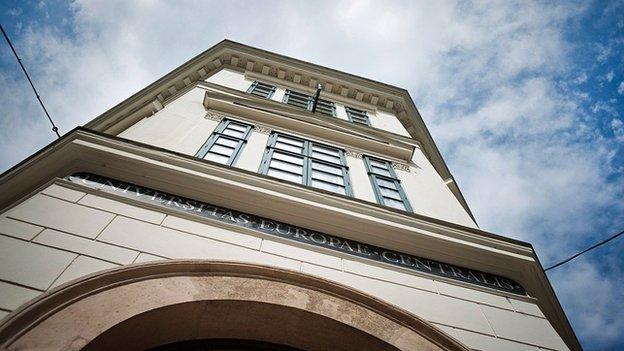Hungary rejects EU pressure over asylum and university laws
- Published
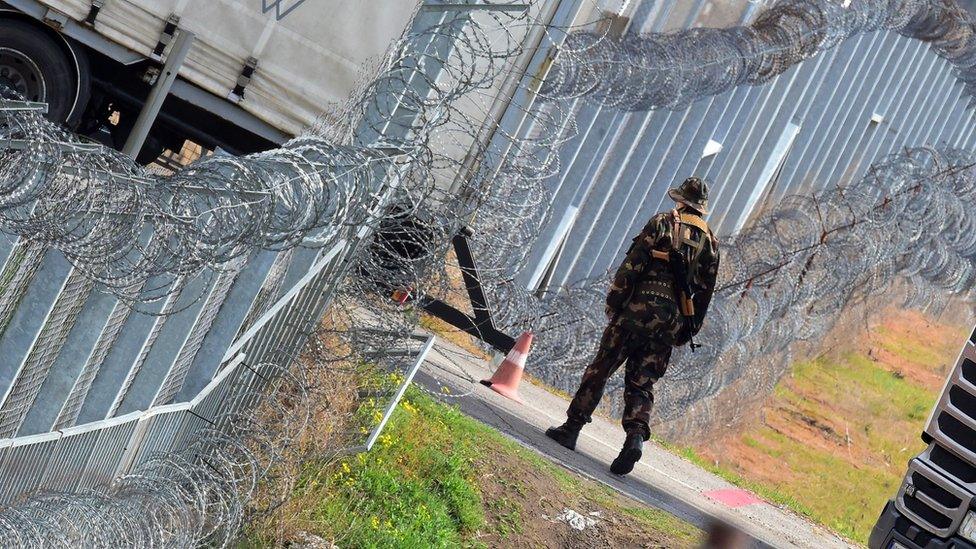
Hungary has been widely condemned over its law to forcibly house asylum seekers in shipping containers surrounded by razor wire
Hungary will not back down over three laws which have brought in question its future membership in the EU, Foreign Minister Peter Szijjarto says.
He told Reuters that the EU should not interfere with "domestic issues".
He said he had already won backing from Poland that it would veto any move to strip Hungary of its EU voting rights.
The EU objects to Hungary's tight controls on asylum seekers and non-governmental organisations (NGOs), as well as a higher education law.
Critics say the education law could lead to the closure of the prestigious Central European University, founded by philanthropist George Soros.
Thousands of Hungarians have held protest rallies against the laws in recent months.
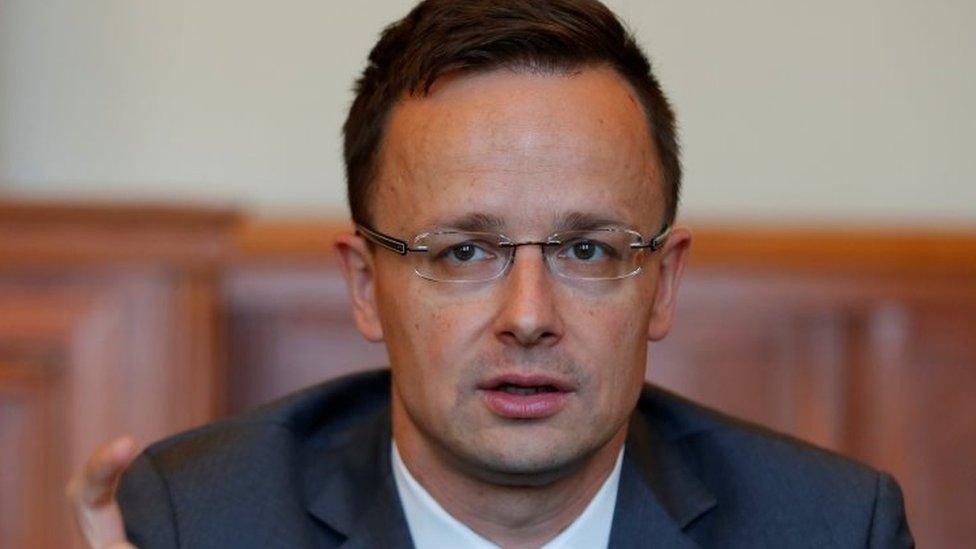
Peter Szijjarto said Budapest would not buckle under growing EU pressure
Asked by Reuters on Monday whether Hungary would backtrack on any of the three issues, Mr Szijjarto answered: "No. Why should we?
"These laws belong to national competence, so I think European institutions should refrain from making attempts at interfering with domestic issues."
The minister added that "my Polish colleague" had made it very clear that Warsaw would veto any EU sanctions against Hungary.
EU rules envisage that such decisions as stripping a member country of its voting rights should be approved unanimously.
Hungary's right-wing Fidesz government of Prime Minister Viktor Orban is under sustained pressure from European institutions to withdraw the three laws, two of which have already been passed, the BBC's Nick Thorpe in Budapest reports.
Hungary is currently forcibly housing asylum seekers in secured shipping containers, raising serious questions whether it is compatible with EU law.
Hungary's Higher Education Law, signed in April, could force the closure of the Budapest-based CEU, which ranks among the top 200 universities in the world in eight disciplines.
Meanwhile, draft legislation on NGOs is expected to go before parliament soon.
Human rights groups say it would stigmatise them as "foreign-backed" organisations.
Last month, the deputy head of the bloc's executive Commission, Frans Timmermans, warned action would be taken in coming weeks if there were no positive developments.

The Central European University

Founded to "resuscitate and revive intellectual freedom" in parts of Europe that had endured the "horrific ideologies" of communism and fascism
Occupies a building that began as an aristocrat's palace before becoming state-owned offices for a planned socialist economy
Has 1,440 students - 335 from Hungary and the rest from 107 other countries
Presents itself as a champion of free speech, with links to universities all over the world, including Russia, Kyrgyzstan, Georgia and Kazakhstan

- Published12 April 2017

- Published4 April 2017
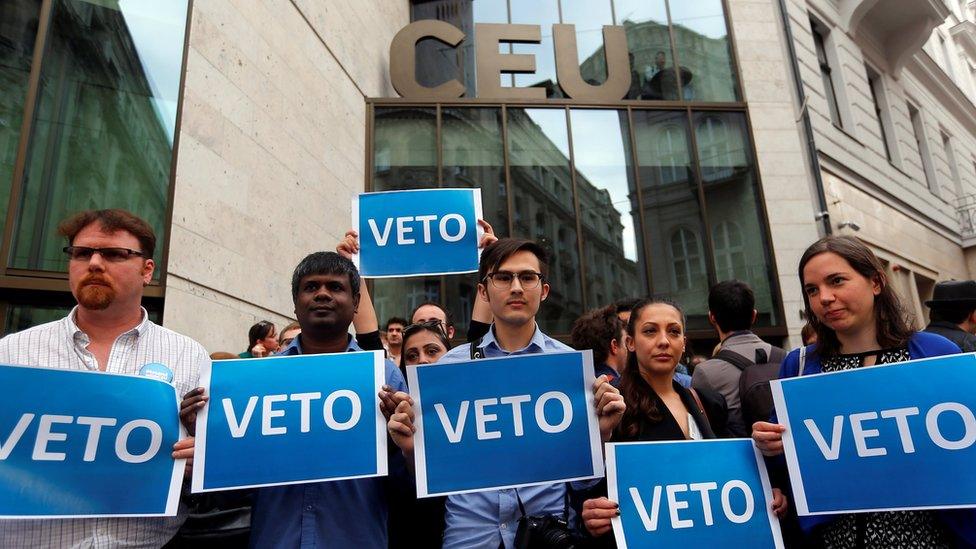
- Published3 April 2017

- Published29 March 2017
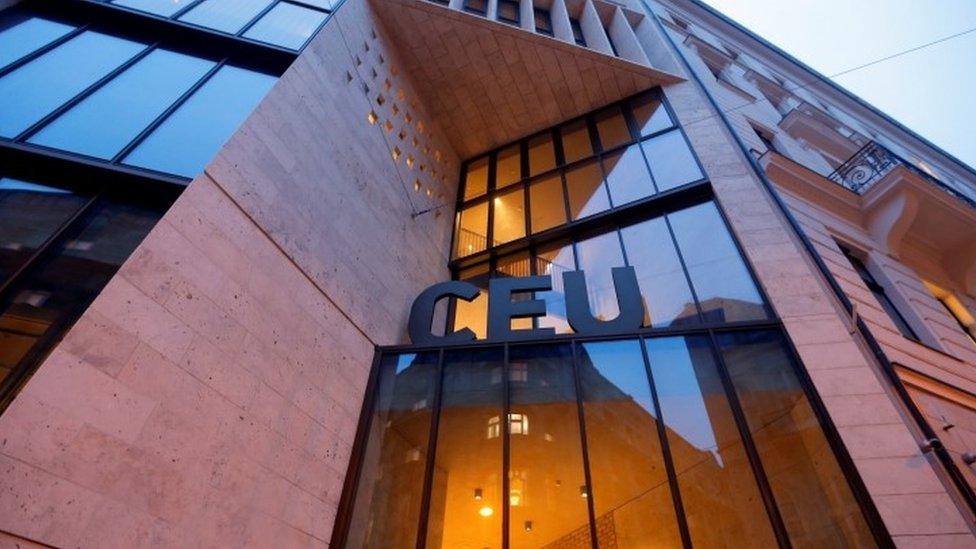
- Published7 March 2017

- Published12 January 2017
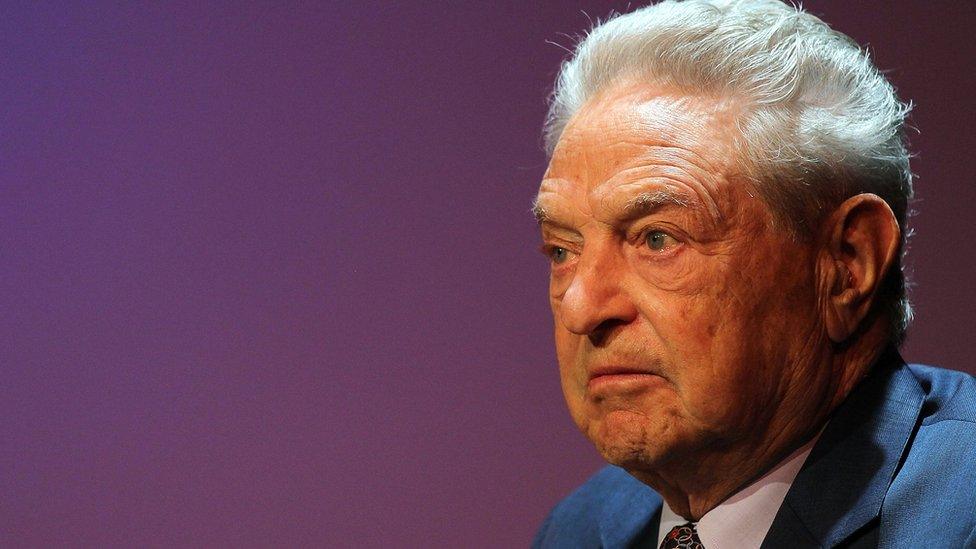
- Published4 September 2015
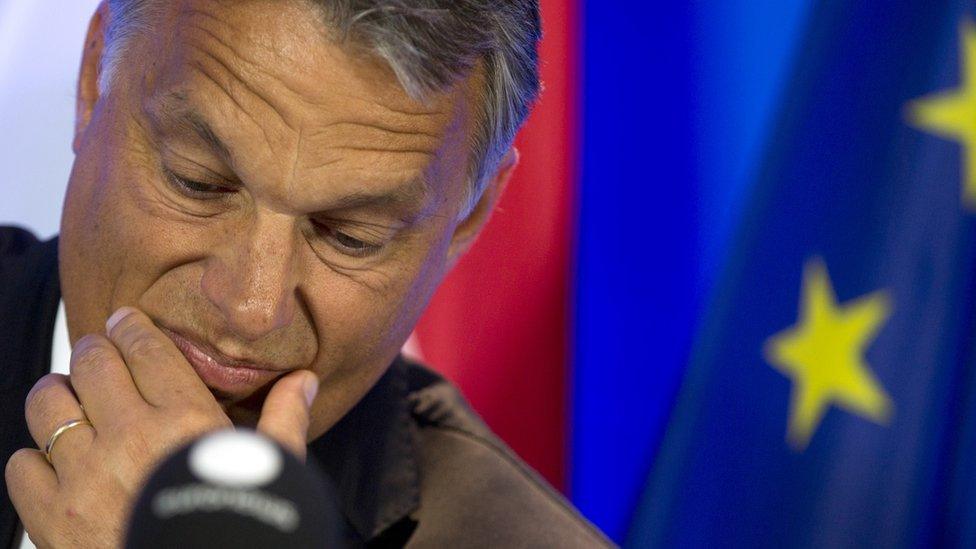
- Published25 June 2016

- Published3 December 2014
